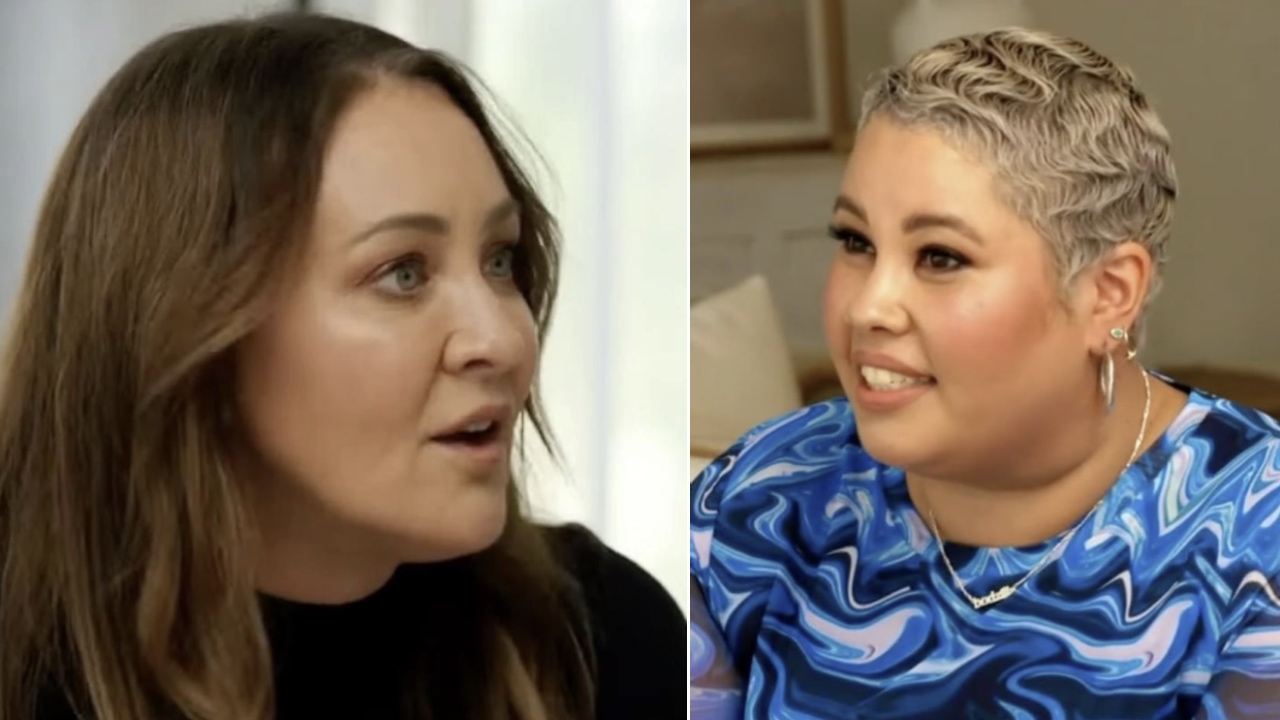"So traumatic": Michelle Bridges grilled over Biggest Loser's impact

Michelle Bridges has been slammed by a body positivity activist for the negative impact The Biggest Loser's strict rules around weight loss had on viewers.
Appearing on The Project for a discussion around health and body image, Bridges went head-to-head with activist April Helene-Horton, who said she was unsure if she wanted to appear in the segment, given the “traumatic” presence The Biggest Loser was in her life.
The weight loss program, which aired on Channel Ten from 2006 and ran for 11 seasons, featured Bridges as one of the several tough-talking trainers, motivating overweight contestants to intensively diet and exercise in a contest to lose the most weight in the fastest time for a big cash prize.
During the discussion on The Project, Bridges and The Biggest Loser were put to the test to discuss what it means to be healthy.
The Project host Sarah Harris asked Helene-Horton who was to blame “for the idea that larger bodies are bad”, as she listed “mainstream media, fashion, doctors who don‘t want to see fat patients, social media” among the main culprits.
“Would you put the fitness industry in that same category?” Bridges asked.
“Yeah I would. And I’ll be really honest and say, I was somewhat nervous coming here today to see you, because I would genuinely say that the show The Biggest Loser was one of the most traumatic things that ever happened to me,” Helene-Horton replied.
“Yeah, I hear you. I absolutely hear you. Going on a show like that back in the day, I really had to dig deep and question my morals about why I’m in the health and fitness industry,” responded Bridges.
Helene-Horton said that, having spoken to Bridges, she’d soon realised they had some things in common.
“You, like me, are somebody who struggled against the idea that you need to be perfect. But the edit [on The Biggest Loser] still made me feel like someone who had the same values as you … would make me feel shame.”
Bridges went on to admit that The Biggest Loser wouldn't "work" today, due to the liberation of the body positivity movement and the change in definition of what it means to be healthy.
“When I look back on it, 17 years ago, it was a totally a different culture back then. I don’t think that show would work today. In fact, I know it wouldn’t,” she said.
Image credits: The Project
